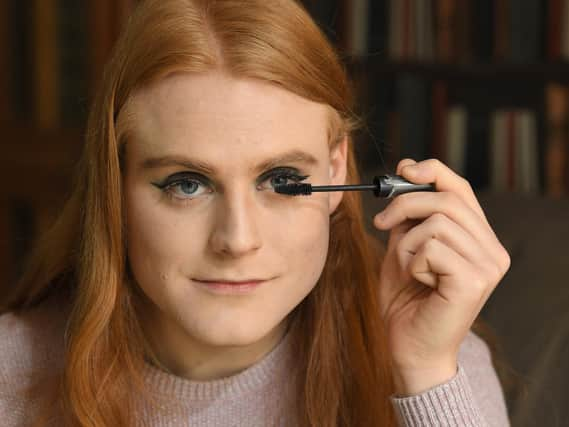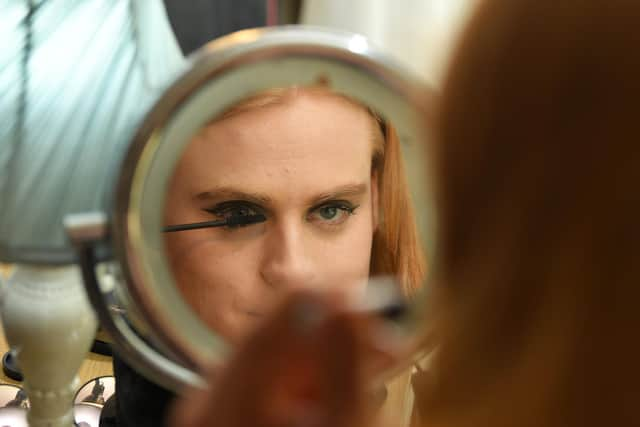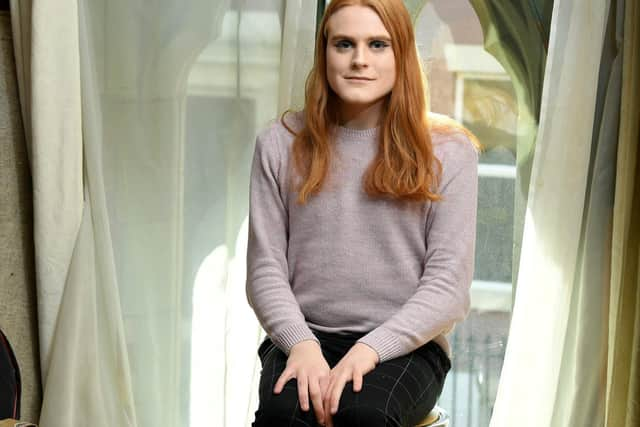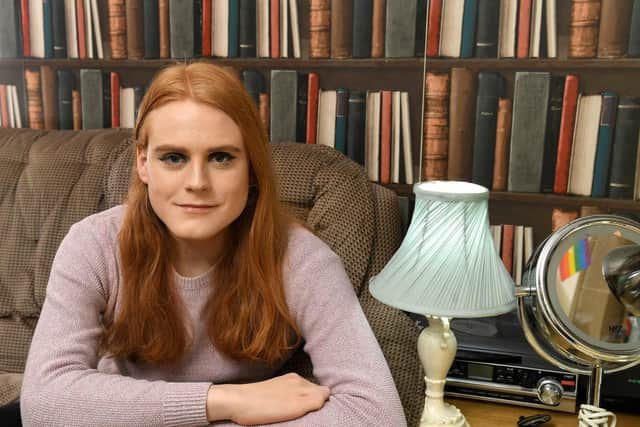Preston actress who battled depression and transphobic abuse fund-raising for life-changing surgery


Preston transgendered woman Amelia Hindle, who has gender dysphoria, is now fund-raising £15,000 to to pay for facial feminisation surgery due to "emotionally tortuous" NHS waiting lists.
The procedure, which is designed to make her face more feminine, is not covered by the NHS as it is deemed cosmetic surgery - but Amelia says it would transform her life.
Advertisement
Hide AdAdvertisement
Hide AdThe 23-year-old, also known as Millie, said: "I understand for a lot of trans people the genital surgery for them is most important, but people see my face every day; not many people see what's in my pants.


"I'm uncomfortable having male genitalia but I'm far more uncomfortable with my stronger nose and my masculine jawline."
Amelia has been on the NHS waiting list to undergo lower surgery for three years. It is not expected to take place until at least 2021-22.
She first went to her GP in early May of 2017, and was diagnosed as having gender dysphoria - when a person experiences discomfort or distress because there is a mismatch between their biological sex and gender identity.
Advertisement
Hide AdAdvertisement
Hide AdHer struggles began at just 12-years-old when she started to wonder if she was born in the wrong body. But she thought it was a phase and didn't put a name to her experience until she began to research gender dysphoria at age 15.


She struggled to talk about it, which impacted her ability to socialise.
"I felt socially awkward and was worried about slipping up and feeling embarrassed. Attitudes were very different 10 years ago and I'd probably have been bullied at school if I'd have been open about it," she said.
"I didn't socialise for years because I wasn't confident in who I was. It was difficult to make friends and I've never been in a relationship because I wasn't ready to come out. I'd have felt like I was lying to them."
It has also impacted her career as an actor.


Advertisement
Hide AdAdvertisement
Hide Ad"It has slowed me down and I feel if I wasn't trans I'd have got into drama school. I'm also often type-casted in transgender roles. In some ways it can be good as it makes you more memorable and people are interested in you but it can also impede you," she said.
"That's one of the reasons why the facial surgery is so important to me. My face is my tool and if it passed more as typically feminine then I could fly under the radar and land female roles."
Her experience has also had a devastating emotional effect.
"I've had a lot of depression, especially when I was in the closet. It takes an enormous amount of emotional energy to hide how you're feeling. I was permanently acting to cover it up. I was burnt out a lot and felt inferior and embarrassed," she added.
But at 20, she mustered the courage to come out as transgendered and sought medical help.
Advertisement
Hide AdAdvertisement
Hide AdSince her first appointment she has had two more spread over two years, and says if she is lucky she may be able to have genital surgery in 2022.
Amelia has already started to see a private specialist to receive hormones to speed the process up.
"I'm lucky in comparison to many transgendered people because my family is largely supportive, even if they don't really understand it. No-one has disowned me or become angry, and my sibling is very supportive and open-minded. They even convinced me to seek medical help," she said.
"Since coming out and having hormone treatment, I've felt less depressed. Oestrogen has had a big effect on my hormones but in a good way. I have less control over them, like they have been unlocked and I now cry over nothing.
Advertisement
Hide AdAdvertisement
Hide Ad"I feel a lot of frustration, but it surrounds how parts of society react to me, rather than the condition of being transgendered itself.
"Online, I've faced transphobic remarks. That's one of the main problems. I love football but some people talking about it online are hostile towards me. It happens a lot on Twitter and Instagram. Whenever I've reported transphobic abuse on Twitter, they have said it's not a breach of their community guidelines, so didn't do anything."
But having the facial surgery could transform her confidence, she believes, and help her "come out of her cocoon" and "become a happy and positive young woman."
The problem, however, is that the NHS is not funded enough to consider the facial surgery non-cosmetic, she added.
Advertisement
Hide AdAdvertisement
Hide Ad"I don't think they believe it themselves that it is purely a cosmetic procedure," Amelia said.
"These professionals know what gender dysphoria is but I don't blame the NHS because they are woefully underfunded, and it is more expensive to have the facial surgery.
"So as frustrating as it is I can see why they do that.
"However, I think there needs to be more education in schools, the media and medical world, as even some GPs don't know how to treat the condition.
"There are some misconceptions and trans people just need to be normalised. We've sometimes been treated as a joke by people."
Advertisement
Hide AdAdvertisement
Hide AdOne of her main worries is the emotional impact of a long wait for surgery.
"It could cause a lot of stress as I get dysphoria attacks. I'm not expecting the operation to completely lift that but it will help with everything aspect of my life," she said.
"I feel like I've missed out on my childhood and teen years and I just hope I can grab a hold of the passion of my 20s before they are up."
A spokesperson of the Leeds and York Partnership NHS Foundation Trust said: "We take the issue of waiting times very seriously. We know the lengthy waiting times for our Gender ID services are far from ideal and we’re sorry for any anxiety this may cause. We’d welcome the opportunity to discuss Amelia’s concerns in more detail with her directly."
Advertisement
Hide AdAdvertisement
Hide AdFor more information about access and waiting times for the NHS' Gender ID Service, see www.leedsandyorkpft.nhs.uk/our-services/gender-identity-service/
To make a donation towards Millie's fund-raising, please visit https://www.gofundme.com/f/millies-gender-treatment?utm_medium=copy_link&utm_source=customer&utm_campaign=p_nacp+share-sheet&rcid=0747acaba5164c30b93e350974012ad9
Comment Guidelines
National World encourages reader discussion on our stories. User feedback, insights and back-and-forth exchanges add a rich layer of context to reporting. Please review our Community Guidelines before commenting.